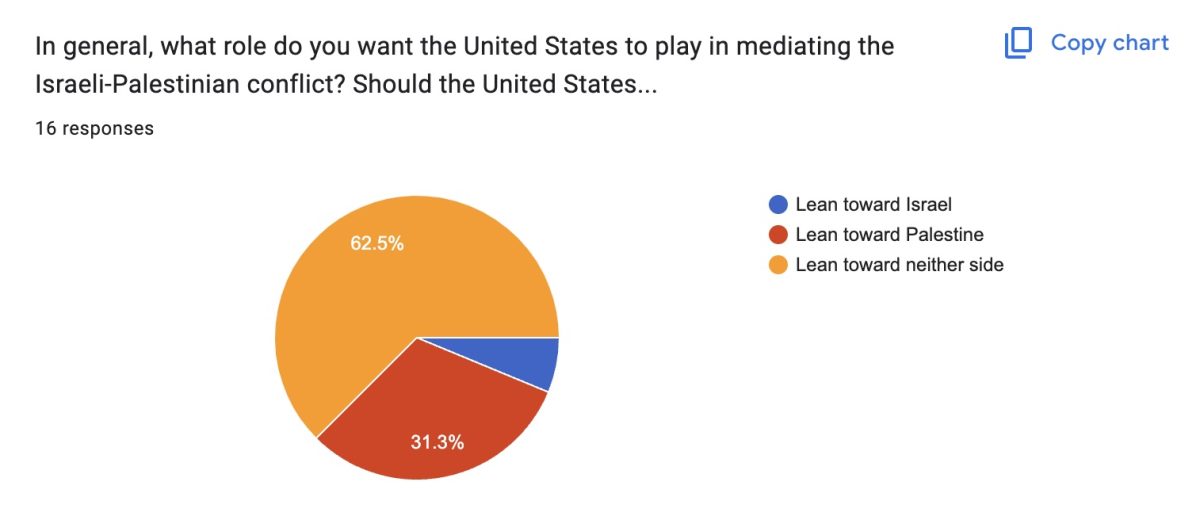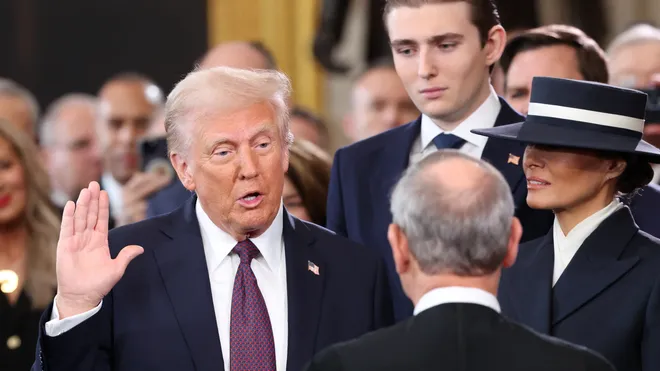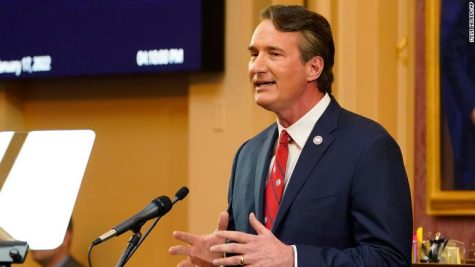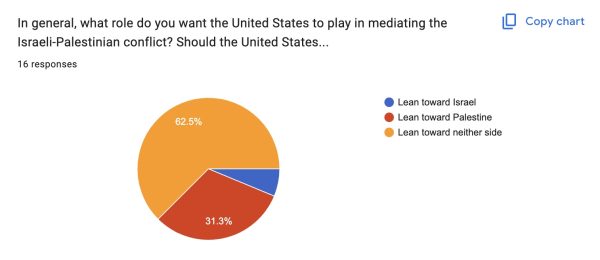Biden’s First Year
President Biden completed his first year in office on January 20th, 2022. His administration has already experienced presidential highs and lows, the global pandemic, and the war in Afghanistan.
The first year of Biden’s presidency has been fundamentally different from his predecessors. Success and struggle alternate constantly – entering in the midst of a global pandemic, facing rising inflation, and contemplating the war in Afghanistan. At the beginning of his presidency, Biden established his own agenda and claimed that he could restore unity to a country divided, fight the pandemic, and stabilize a shaky economy amid social divisions within the country.
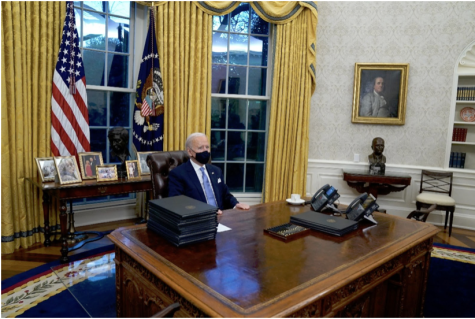
“It’s the best of times, it’s the worst of times,” Robert Gibbs, former press secretary to President Barack Obama said. “You can divide his year pretty evenly, with the president starting by doing some important things to get the country back on track,”
This year, transformative spending bills have been passed, and life-saving vaccines have now been made available to nearly all Americans. However, according to polls, Biden has ended his first year weaker than when he began. His poll numbers have plummeted. On the other hand, his team insists that this doesn’t perturb them, and history will be on their side.
“It does not surprise me that despite progress on Covid, despite progress on the economy, voters are not going to give us a passing grade yet,” Ron Klain, White House chief of staff said in an interview with Politico. “But President Biden was elected to a four-year term, not a one year-term.”
In the first six months of his presidency, Biden steered a $1.9 trillion COVID-19 relief bill to passage. This surged funds to American families, schools, and businesses affected by the pandemic. His administration also rolled out a massive vaccine distribution program making the shots available just months after usage approval. He unveiled a series of economic policies that would help cut unemployment from nearly 9 %on his inauguration day to 3.9 % by the end of his first year.
“This is extraordinary,” Helaine Olen in an article in the Washington Post said. “In a nation where people who need to rely on welfare to get by are routinely derided as “takers,” Joe Biden and congressional Democrats sold the nation on the largest expansion of the social safety net since the Great Society initiatives of the 1960s, and they did it in less than two months.”
When inaugurated, Biden declared America could have faith in their government again, undoing the actions of his predecessor, Donald Trump. But in the late summer, the Biden administration was thrown off course by political missteps of their own making. Biden used the Fourth of July to declare America’s independence from the virus, but it only took a few weeks for this declaration to be rendered false. The Delta variant spread quickly throughout the country, preying on the unvaccinated. Death tolls were high, and hospital occupancy skyrocketed all over.
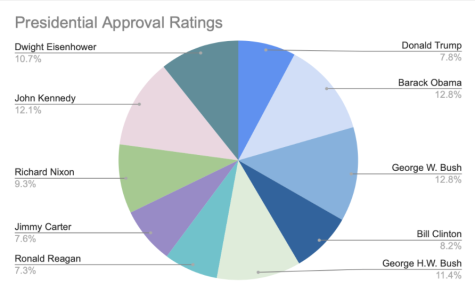
“Once Biden came in, he started to solve the issue Trump created and focused more on that, compared to fixing the problem of Covid and what it affected,” an anonymous sophomore said. “I understand that solving the issues Trump created will help solve the coronavirus issue, but it would take too long, and I feel like obviously there is politics involved with how Biden wants to look compared to Trump.”
Then the world watched as the U.S. withdrew from Afghanistan, leading to images of tumult and violence. The Biden administration tried to use this to show their mettle, having ended the nation’s longest war and confronting the seemingly unbeatable pandemic. However, this didn’t help his poll numbers. People aren’t thrilled that a president who has emphasized competency being his central message to the American people, these political missteps have been politically damaging.
“Their pull out of Afghanistan was a disaster,” said Stacy Larson, mother of an LCPS student. “The U.S. national debt has topped $30 trillion. Inflation is high. Supply shortages make it impossible to purchase various goods. Things are not headed in the right direction.”
Reports emerged in South Africa about discovering a highly transmissible variant of Covid, the omicron variant, towards the end of November. The variant brought the nation to a halt during the holidays and forced Biden to end the year facing a new round of questions about his managerial abilities and if he was fit for the job.

“I feel like in terms of taking action for something; Trump did a better job since he tried. However, it was not plausible and affected the rest of society and the U.S. economy,” the sophomore said. “So I feel like Biden is balancing out the consequences of Trump’s actions, but I wouldn’t say he’s any better since he won’t start helping the problem as a whole.”
As the pandemic ravaged the nation, Biden took the reins of a country that lost thousands of lives and changed how we live. Trump’s combative term ended with his refusal to accept the election results, his torment of deadly lies igniting an increasingly fatal riot at the Capitol. Biden was meant to be the steadying force stabilizing our nation. Although Biden ended his first year in office shakily, the White House remains hopeful as he embarks on his second year in office.
“The President became President at a time of great crisis in the country. A Covid crisis, an economic crisis. The voters didn’t say ‘Go do a little bit,” Klain said. “The challenge is not that we have tried to do too much, but that we have more to do.”


